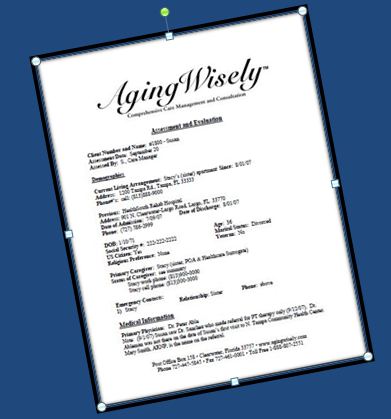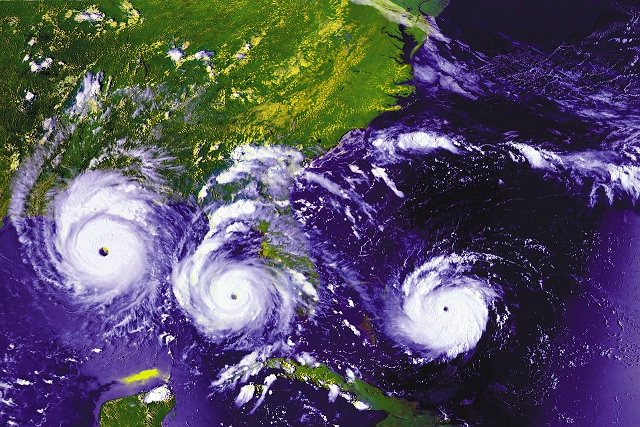Geriatric Care Management Standards
The field of geriatric care management is relatively new compared to many professions. Early geriatric care managers typically started their careers as social workers, geriatric case managers and nurses in various settings such as hospitals and nursing homes. As more and more families needed guidance and independent advice, as well as coordination assistance (especially for families at a distance), care management practices opened to fulfill these needs.
The National Association of Professional Geriatric Care Managers (NAPGCM) is the professional body representing this industry. As mentioned, many of its members have backgrounds in various professions and may thus belong to other organizations, be licensed under certain regulations and have additional standards and ethics related to those. The NAPGCM acknowledged this when it created its professional standards:
“These Standards have been developed because Professional Geriatric Care Management is a human service specialty provided by professionals from diverse backgrounds and academic preparations to a vulnerable and often frail population. No one profession can claim exclusive domain over the knowledge and skills required to provide geriatric care management services. Thus, Geriatric Care Managers (GCMs) may be members of formal professions, such as social work, nursing or psychology, or may hold advanced degrees in gerontology, counseling, public health administration, or other fields of human service specialization.
In addition, these Standards have been developed because certain issues of particular concern to GCMs have not always been included in the standards developed by other organizations. Thus, the purpose of these Standards is to supplement already existing standards of other professions and organizations and to provide guidance to the members (of NAPGCM) in the many complex situations presented by their practices.”
The geriatric care management standards cover a variety of areas including: the client relationship (identifying the client, promoting self-determination, privacy rights, professionalism and recognition of the geriatric care manager’s personal beliefs and values and how that might impact clients), professionalism of the geriatric care management practice (defining the role, care plan, employment laws, decision-making roles, continuing education and certification), and business policies (advertising/marketing, fee, disclosure of business relationships). To read the geriatric care management standards of practice in more detail click here.
When you hire professional geriatric care managers who belong to NAPGCM you have the added protection of knowing they meet professional standards as well as adhere to a code of ethics. Additionally, many geriatric care managers will have other professional credentials that may enhance their ability to meet your family’s needs. Our Hiring a Geriatric Care Manager Checklist helps you to identify important characteristics and understand the business parameters before you make a decision.
We invite you to take a look at our Clearwater-based Florida geriatric care management team. You can read about each geriatric care manager’s qualifications, experience and certifications. We are proud of the experienced team we have built and pleased that both our company and team members have been acknowledged with several awards. However, our most important accomplishments are our day-to-day contributions to the lives of clients and families.
Contact us at 727-447-5845 with any questions or tell us a little more about how we can help:




 Caring for a loved one from a distance can be especially challenging. Because many seniors come to Florida to retire or families otherwise relocate to enjoy all that Florida has to offer, many elders live here without the nearby support of close relatives. Often, communities and neighbors are very supportive, but as we have written in the past,
Caring for a loved one from a distance can be especially challenging. Because many seniors come to Florida to retire or families otherwise relocate to enjoy all that Florida has to offer, many elders live here without the nearby support of close relatives. Often, communities and neighbors are very supportive, but as we have written in the past, 

 Hospitalization often results in functional decline for elders, with a change in functioning occurring as quickly as day two of being hospitalized. For elders with Alzheimer’s and other forms of dementia, effects are often more pronounced. Several studies over the years have demonstrated both physical and cognitive impacts.
Hospitalization often results in functional decline for elders, with a change in functioning occurring as quickly as day two of being hospitalized. For elders with Alzheimer’s and other forms of dementia, effects are often more pronounced. Several studies over the years have demonstrated both physical and cognitive impacts.



 A lot of families contact us wondering aout getting an elderly parent assessed. Perhaps “getting your elderly parent assessed” is a bit of a misnomer, as the elder, family and professional take part in a cooperative process to get a picture of the individual situation and solutions that fit. It is not as simple as an inspection and “diagnosis” but more of a problem solving process with everyone’s involvement. The process and its outcomes can be beneficial for any family struggling with elder care concerns (or issues related to chronic illness or disability).
A lot of families contact us wondering aout getting an elderly parent assessed. Perhaps “getting your elderly parent assessed” is a bit of a misnomer, as the elder, family and professional take part in a cooperative process to get a picture of the individual situation and solutions that fit. It is not as simple as an inspection and “diagnosis” but more of a problem solving process with everyone’s involvement. The process and its outcomes can be beneficial for any family struggling with elder care concerns (or issues related to chronic illness or disability).








 When you are assisting in the care of your aging parents or other elders, one of your primary responsibilities may be managing medical care. You may start by simply assisting with questions or problems your aging loved one has, such as going along when they talk with the doctor about a recommended surgery or
When you are assisting in the care of your aging parents or other elders, one of your primary responsibilities may be managing medical care. You may start by simply assisting with questions or problems your aging loved one has, such as going along when they talk with the doctor about a recommended surgery or 


 Popular Downloads
Popular Downloads


 Get Our Newsletter!
Get Our Newsletter! Mission Statement
Mission Statement

